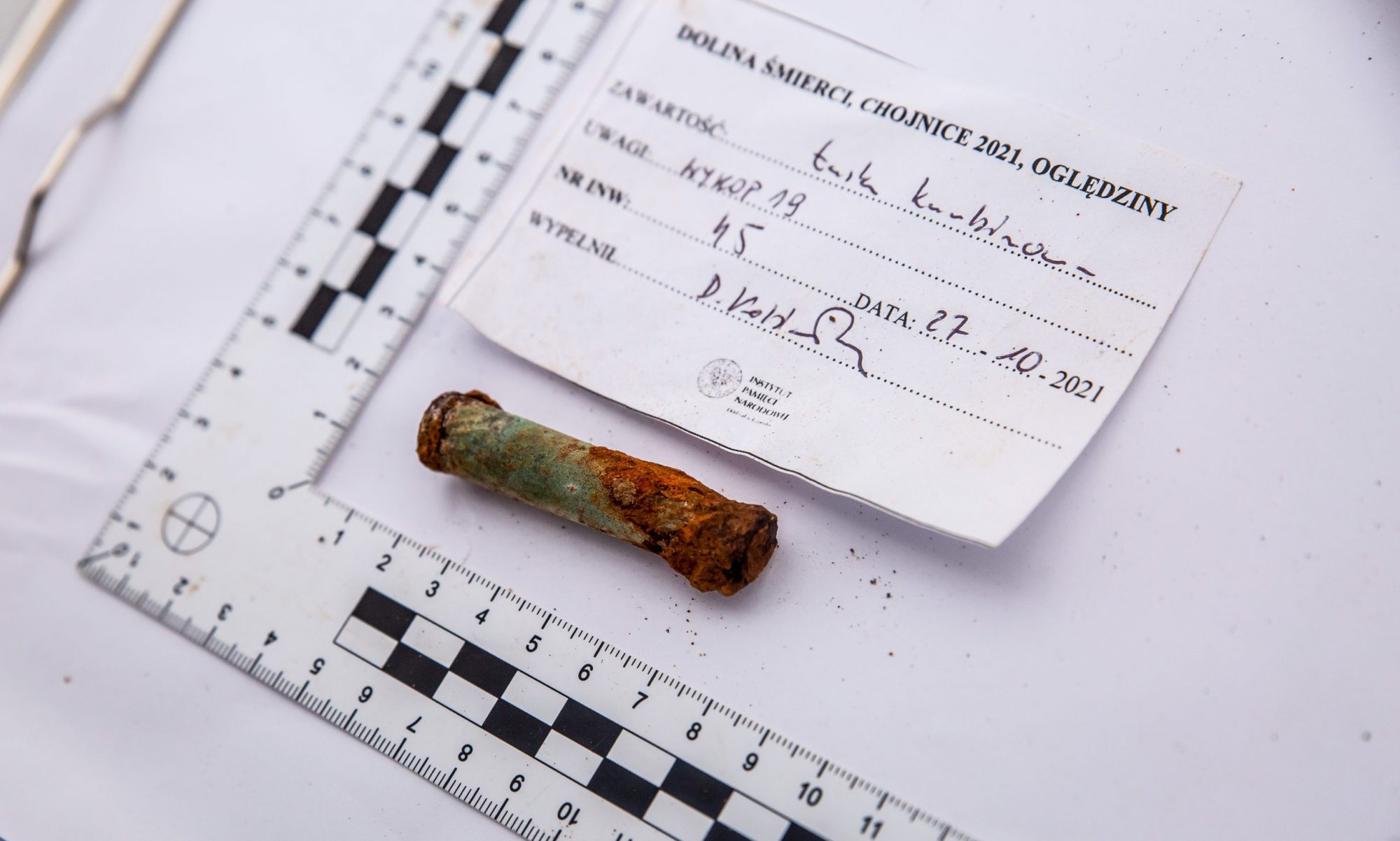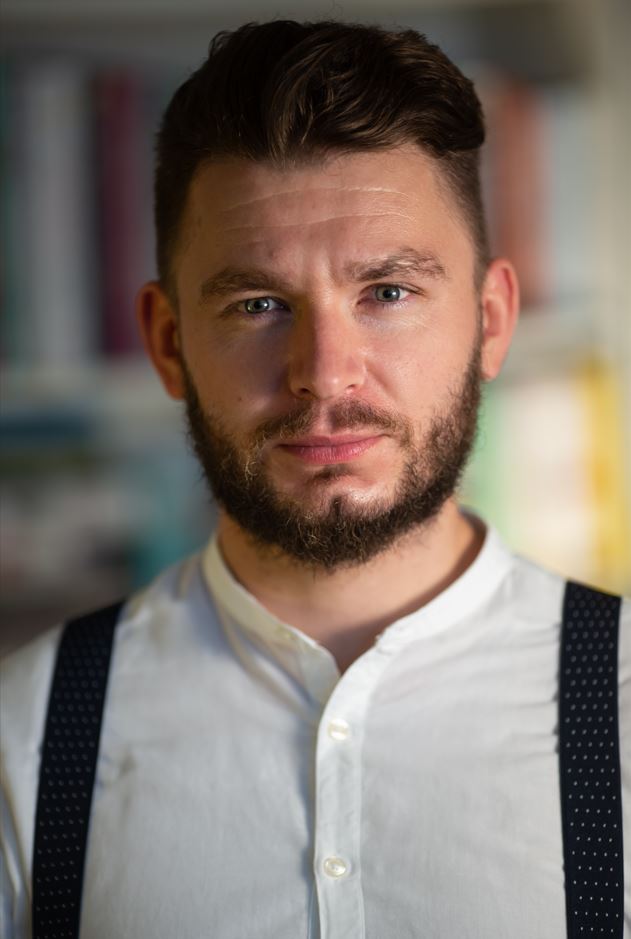
Dawid Kobiałka – archaeologist and cultural anthropologist, principal investigator resposible for managing the project.
Author and principal investigator of projects funded by the National Science Centre, Poland (“Between memory and oblivion: archaeology and 20th century military heritage in the woodlands) as well as the Ministry of Culture and National Heritage , Poland (“An archaeology of Death Valley”, “A terrible smell of burning: archaeological research of a massacre site in Death Valley in Chojnice”. Author of articles published in “Antiquity”, “Journal of Contemporary Archaeology” and “Journal of Historical Archaeology”, among others.
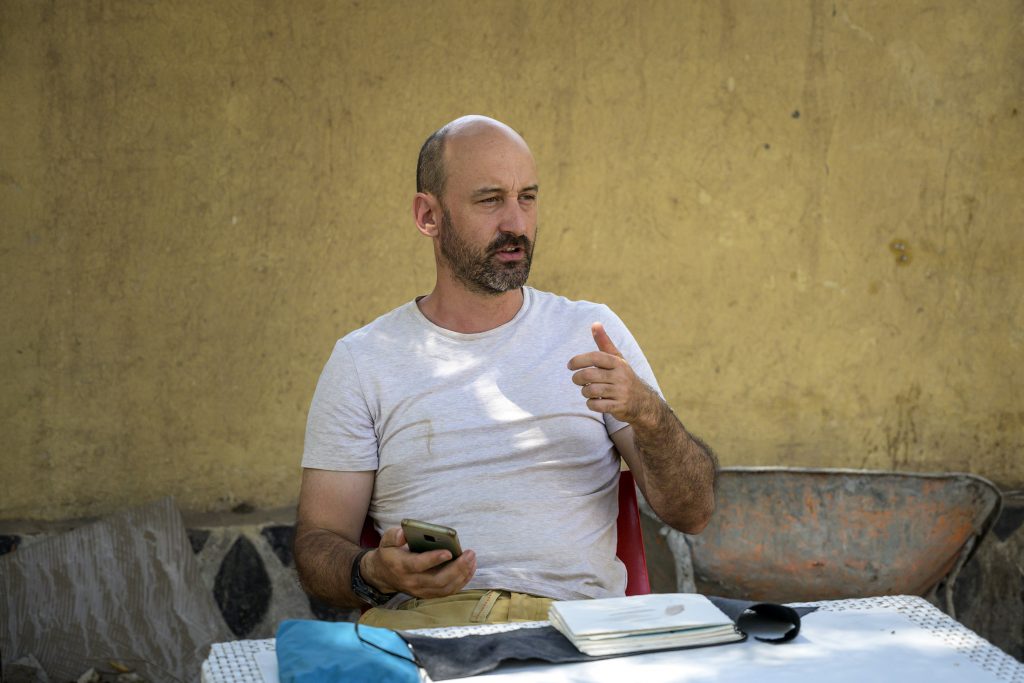
Alfredo González-Ruibal – is a senior researcher with the Institute of Heritage Sciences (Spanish National Research Council), responsible to taking part in field research within the project and analysing the data.
His research focuses on contemporary archaeology and African archaeology. He is particularly interested in conflict, dictatorship and colonialism, which he has explored in Spain and different African countries. He develops a long-term programme on the archaeology of civil war and dictatorship in Spain, in the context of which he has excavated battlefields, mass graves, concentration camps and forced labour camps. He is the author of An archaeology of the contemporary era (Routledge, 2019) and The archaeology of the Spanish Civil War (Routledge, 2020), among other books. He is an editor with the Journal of Contemporary Archaeology and World Archaeology.
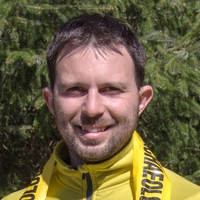
Mikołaj Kostyrko – archaeologist, indepented researcher, responsible for obtaining and analysing LiDAR data and aerial imaginaries related to the sites researched during the project.
His research interests include non-invasive archaeology and landscape archaeology. Partipant of many archaeological research, author of articles about the use of remote-sesing data in archaeology.

Tomasz Ceran – historian, head of Office of Historical Research in the National Insitute of Rememberence, Department in Bydgoszcz, responsible for obtaining and analyzing historical records related to the sites researched during the project.
His research interests include German war crimes during the first months of the Second World War in Pomeranian province, Poland. Author of articles and books about them.

Izabela Mazanowska – historian, worker in Office of Historical Research in the Natinal Insitute of Rememberence, Department in Bydgoszcz, responsible for obtaing and analazing historical records related to the sites researched during the project.
Her research interests include German war crimes during the first months of the Second World War in Pomeranian province, Poland, Author of articles and books about them.

Márcia Lika Hattori – is an archaeologist and forensic anthropologist. He has a BA in history and MA in archaeology from Sao Paulo University and a PhD in contemporary archaeology from the University of the Basque Country, reponsible for taking part in field research and analyzing human bones discovered during the project.
Her doctoral research was developed within the framework of a Marie Curie programme (MSCA-ITN). She has conducted fieldwork in Brazil, Peru, Portugal, Spain, Ethiopia, Guinea-Bissau and Djibouti. Her research combines archaeology, forensic anthropology and critical heritage studies to explore forms of disappearance of people in São Paulo, Brazil and how they persist in the bureaucracy and management of corpses, analysing legacies of the last dictatorship in the democratic period. Currently, she is a researcher at the Forensic Archaeology and Anthropology Centre at Universidade Federal de São Paulo (CAAF – UNIFESP) and a visiting researcher at the Spanish National Research Council (CSIC).

Candela Martínez Barrio – is an archaeologist with degrees in forensic anthropology from the Complutense University of Madrid and the University of Sao Paulo, reponsible for taking part in field research and analyzing human bones discovered during the project.
She has conducted forensic fieldwork associated to human rights violations in Spain, Brazil, Uruguay and Peru, and archaeological work in Ethiopia, Djibouti and Somaliland. Between 2016 and 2018 she was hired as a forensic anthropologist in a project in Brazil for the identification of persons killed and made disappear for political reasons during the dictatorship (1964-1985). She was in charge of the protocols for managing the data of over 1,000 individuals. In Spain, she has participated in numerous exhumations of victims of the Spanish Civil War and conducted osteological analyses. She has also carried out fieldwork on battlefields, concentration camps and forced labour camps.
Aleksandra Krupa-Ławrynowicz
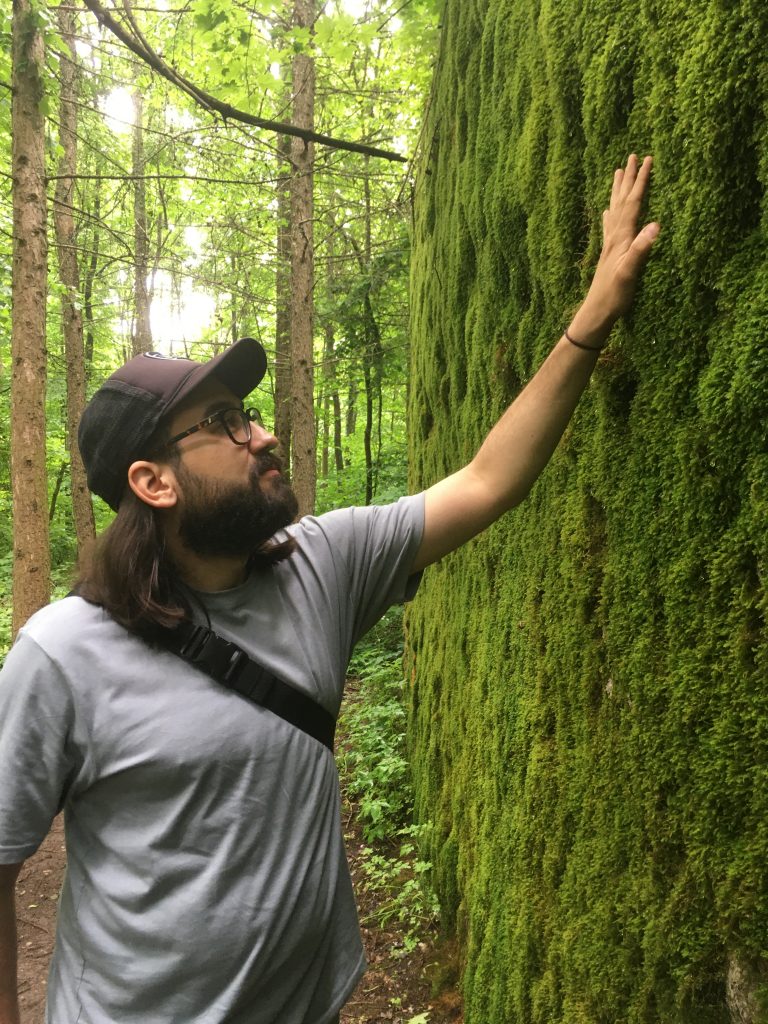
Mikołaj Smykowski – cultural anthropologist, ethnologist, associate profesor at Insitute of Anthropology and Ethnology in Adam Mickiewicz University in Poznań, responsible for carrying out ethnogphic research concerning mass killing sites during the project and analyzing the obtained data.
His research interestes include enviromental history, multispecies ethnography and critical heritage studies. Author of articles about enviromental history of the Holocaust published in e.g. “Journal of Genocide Studies”, “Teksty Drugie”, “Konteksty”.
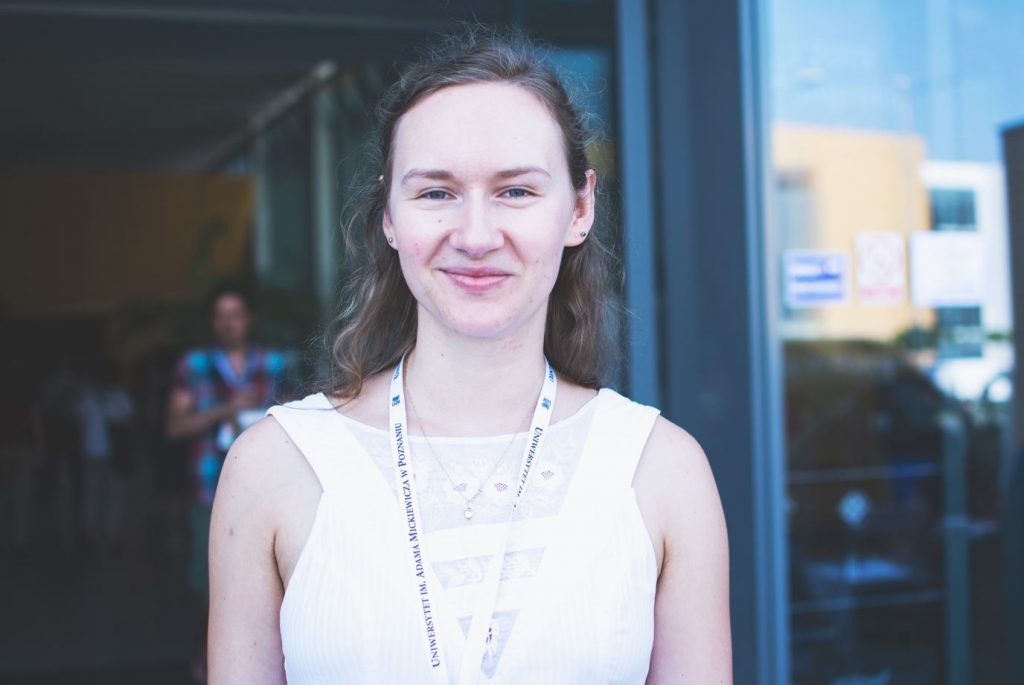
Alexandra Staniewska – social anthropologist with a forencis anthropological experience, a PhD candicate in Institute of Anthropology and Ethnology in Adam Mickiewicz University in Poznań, responsible for carrying out ethnographic research concerning mass killing sites researched during the project and analyzing the obtained data.
Her research interests include bio- and necropolitics, death and body studies, exhumations and historical politics, physical anthropology and forensic anthropology. One of Alexandra project was about ethograpic research concerning exhumations of victims killed during Spanish Civil War, laurate of “Diamentowy Grant” (“Diamont Grant”).
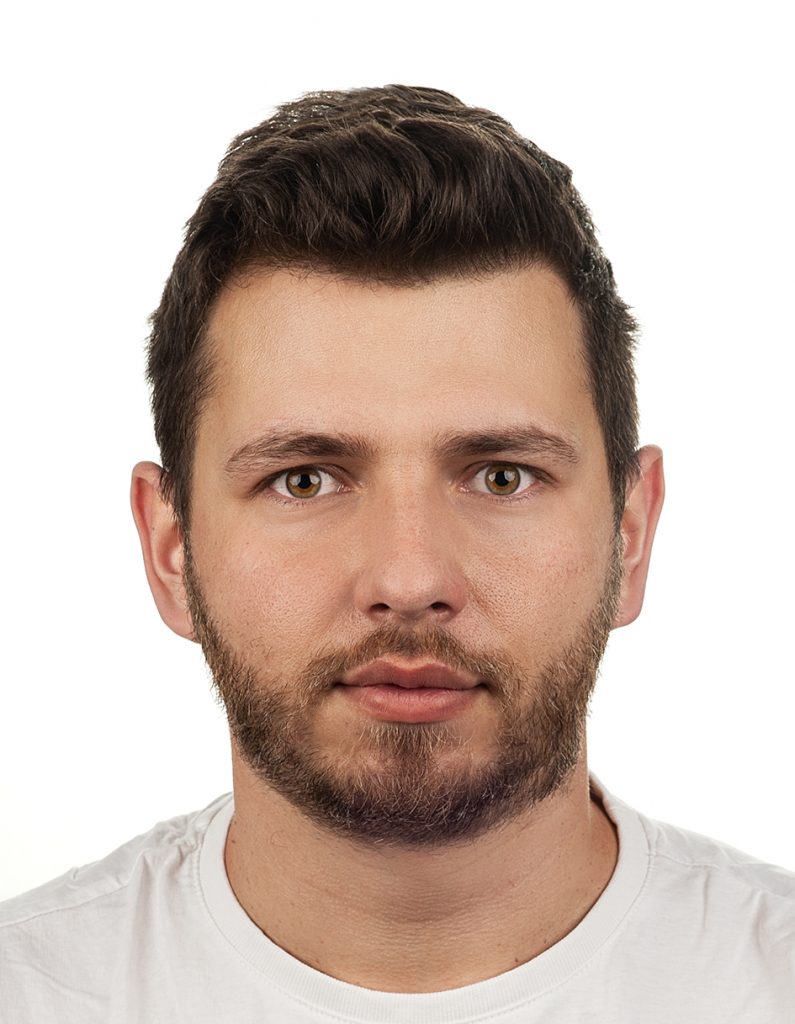
Michał Czarnik – archaeologist, a PhD candidate at Department of Archaeology in Rzeszów University, responsible for taking part in field research and collecting, analyzing the spacial data.
His research interests include modern conflict archaeology and archaeology of the First World War.
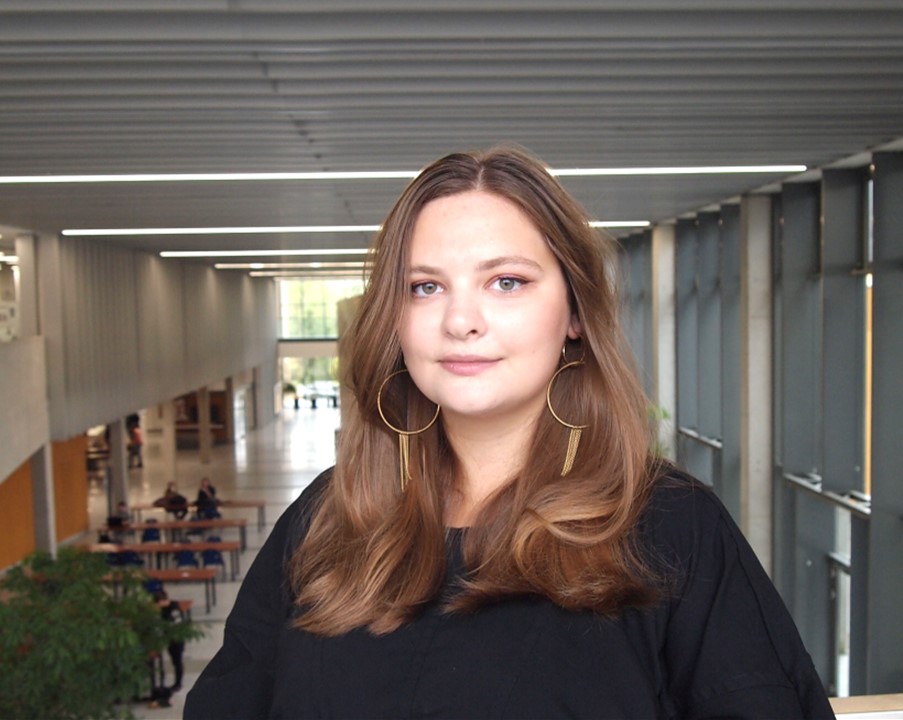
Zuzanna Kowalczyk – archaeologsit, a PhD candidate at Department of Archaeology in Adam Mickiewicz University in Poznań, reposible for taking part in archaeological field research realized during the project and prepearing photogrammetric documentation during it.
Her research interests include the role of theory in archaeology and new methods of documentation of archaeological field research. Zuzanna participated in a few archaeological project in the past including research in Death Valley in Chojnice in 2021.
The research team includes also:
dr Joanna Rennwanz –
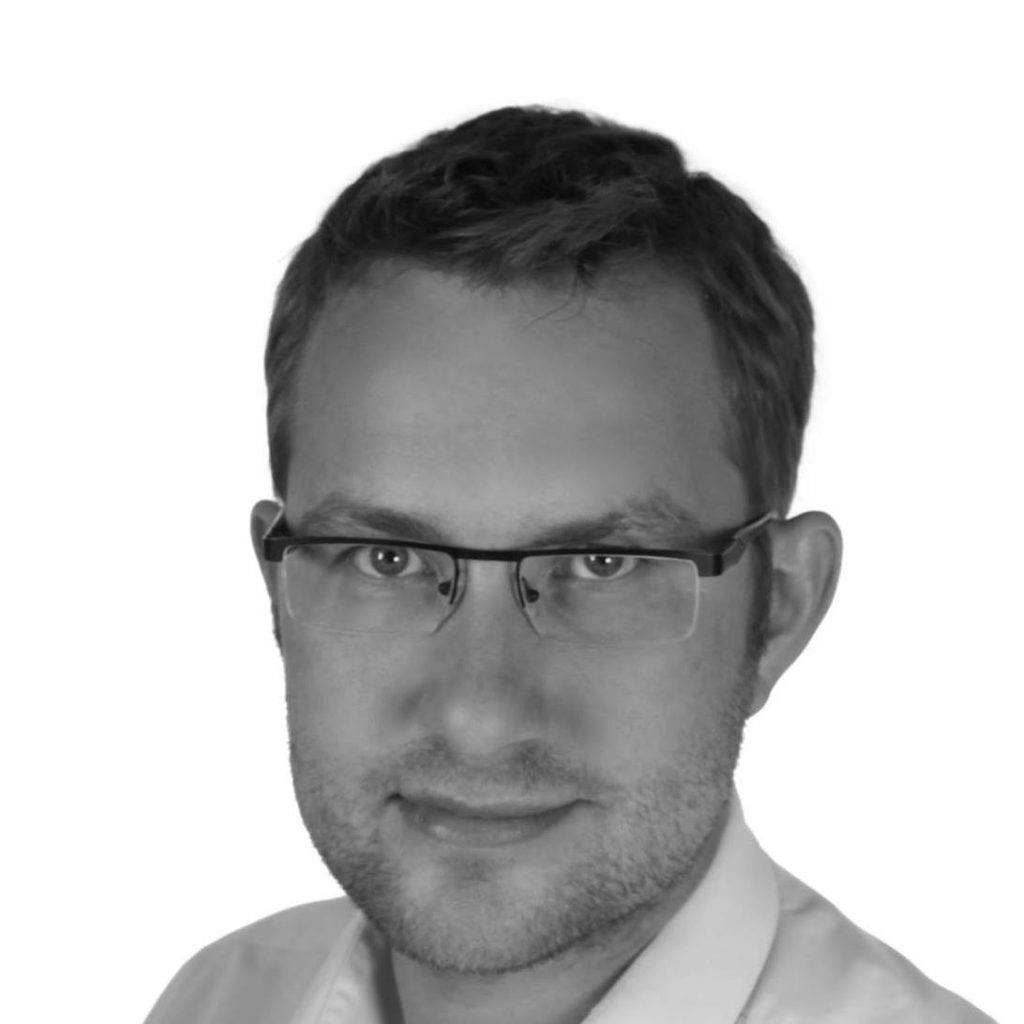
dr Przemysław Zientkowski – philosopher, associate professor at Department of Phedagody, Kazimierz Wielki University in Bydgoszcz, resposible for analyzing project resulsts for educational and pedagogical purposes, another tasks includes coordinating cooperation between the City Hall of Chojnice and research team.
His research interests include social anthropology, political philosophy, philosophy of education. Przemysław participated in many scientific projects in the past. He took part in the projects concerning Death Valley in 2020 and 2021 as well.
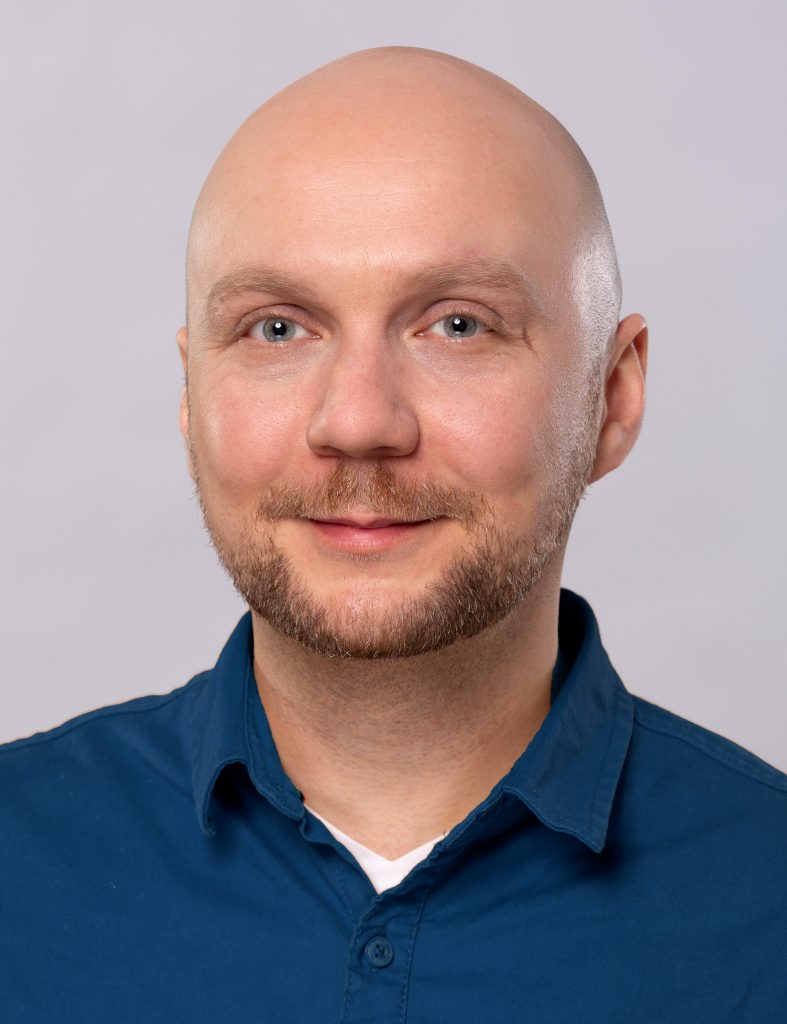
Daniel Frymark – is a photographer and documentalis, reposible for preparing photographic documentation of field research.
Daniel took part in research in Death Valley in 2020 and 2021.
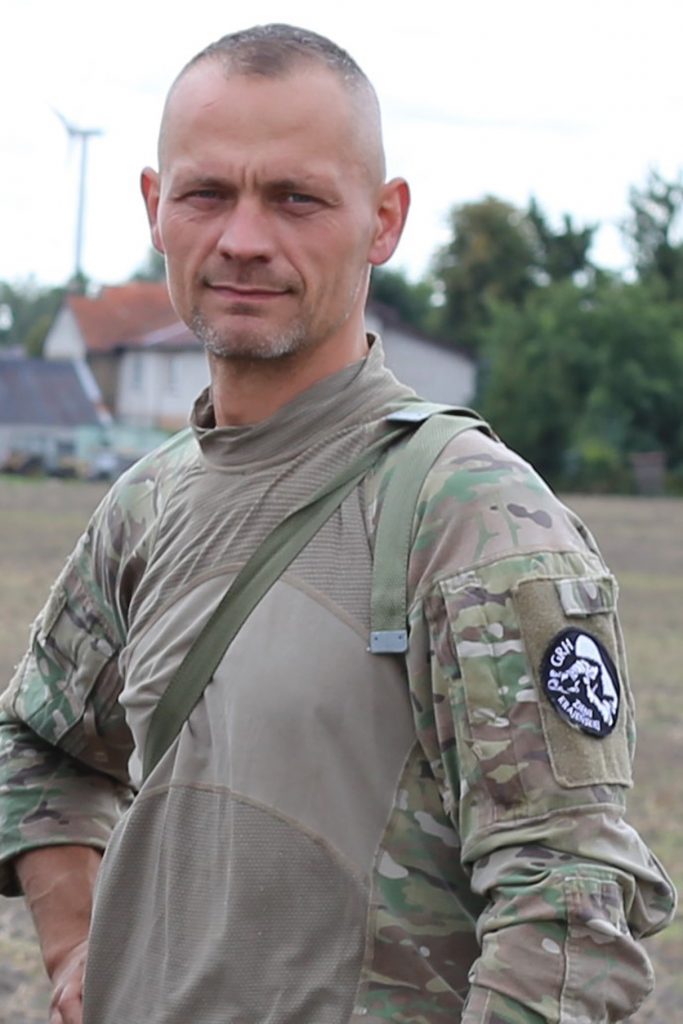
Daniel Nita – is a student of archaeology at Intitute of Archaeology of Łódź University, resposible for taking part in metal detector surveys of the sites researched during the project.
Daniel took part in research in Death Valley in Chojnice between 2020 and 2021. He is one of the discoverers of human bones in Death Valley.
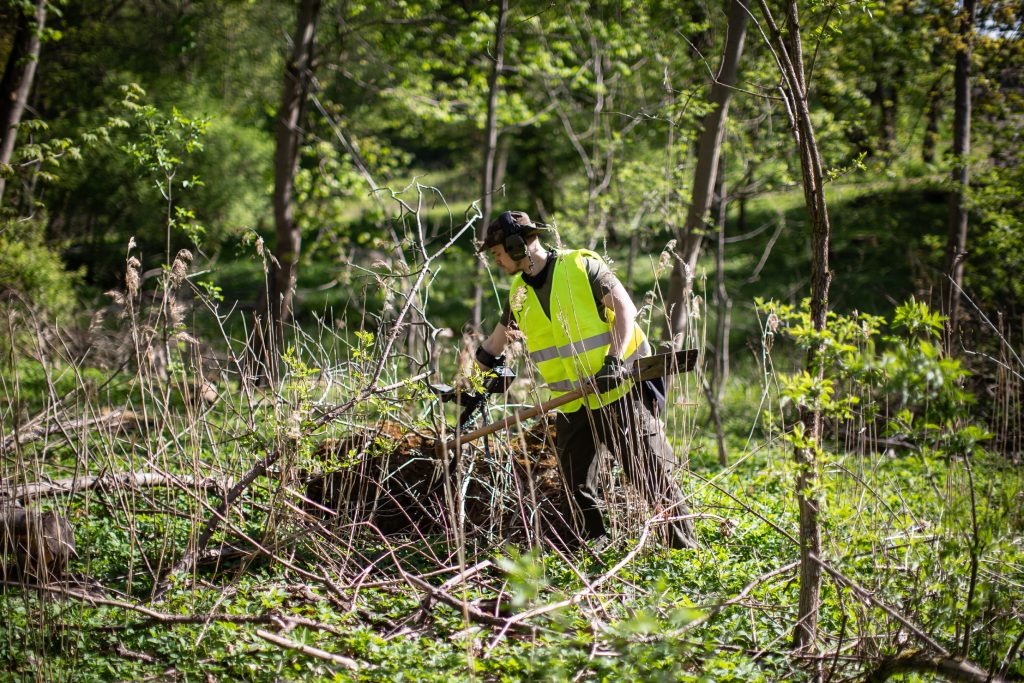
Karol Woliński – is responible for taking part in metal detector surveys of the sites researched during the project.
Karol took part in research in Death Valley in Chojnice in 2020. He is one of the discoverers of human bones in Death Valley.
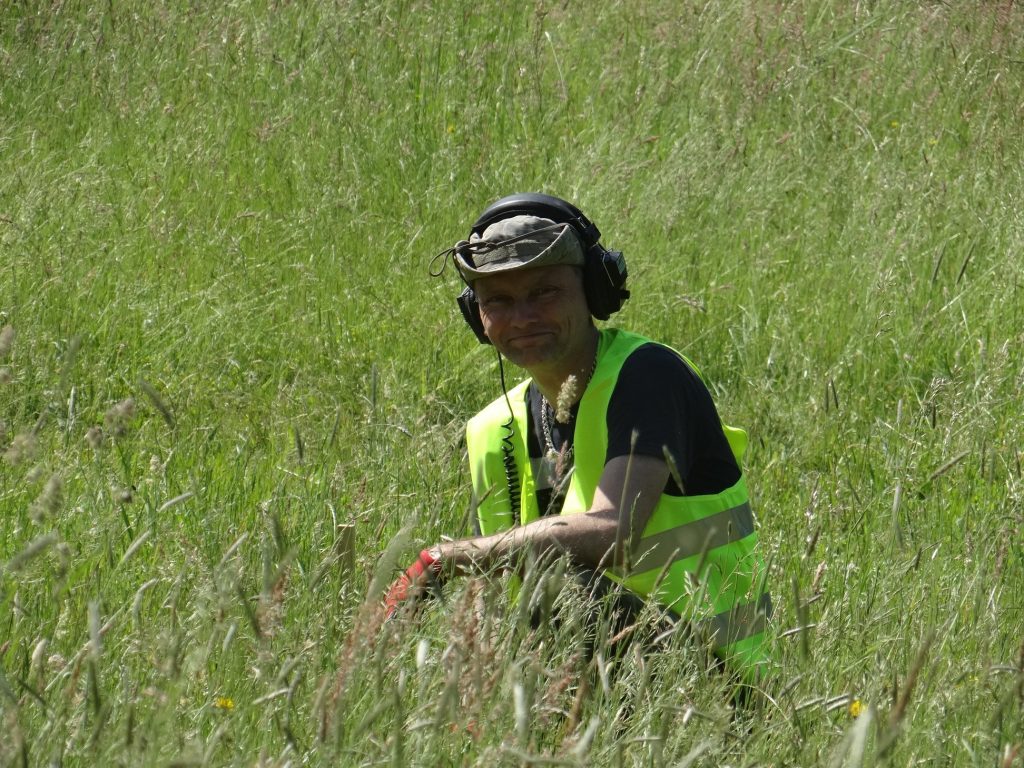
Przemysław Glanc – is responsible for taking part in metal detector surveys of the sites reserched during the project.
Przemysław took par in research in Death Valley in Chojnice in 2020.
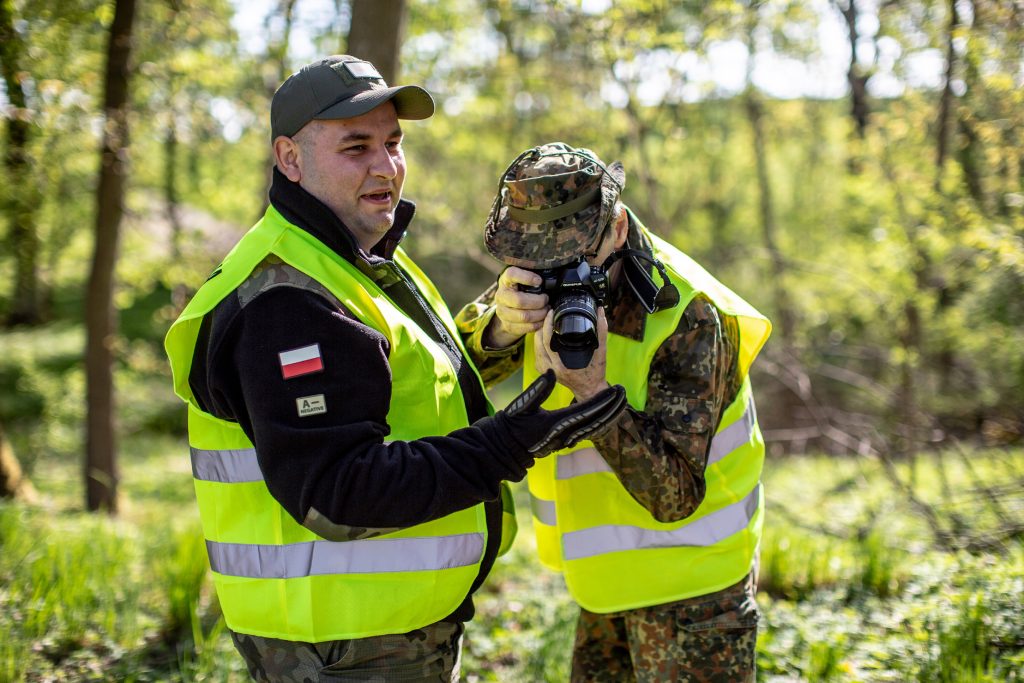
Sebastian Śnieg – is resposible for taking part in metal detector surveys of the sites researched during the project.
Sebastian took part in research in Death Valley in 2020.
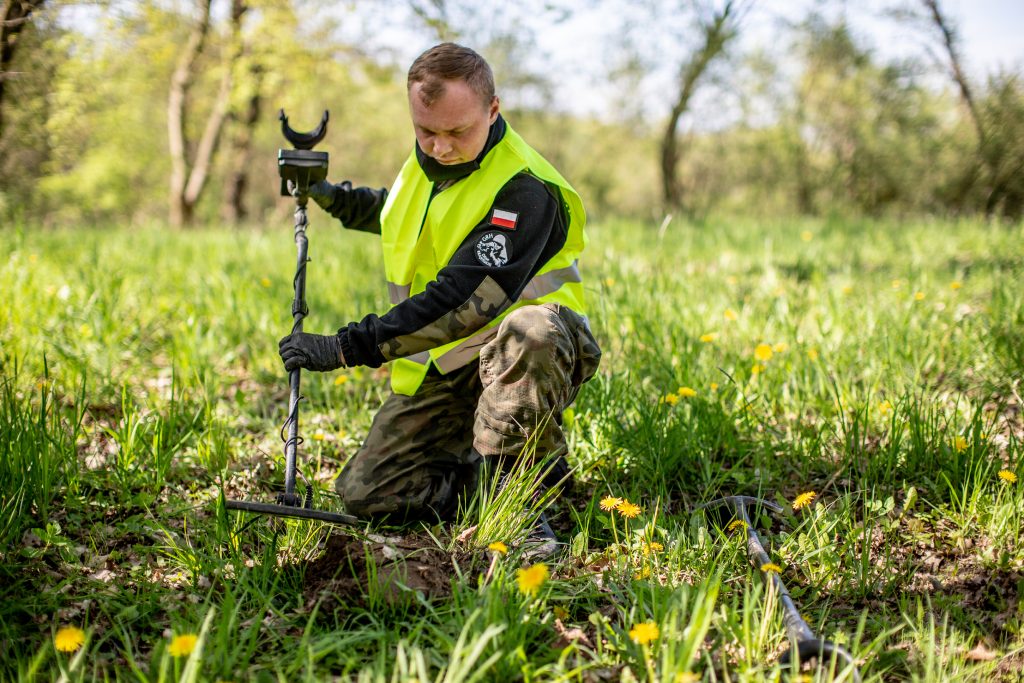
Ernest Urbaniak – is responsible for taking part in metal detector surveys of the sites researched during the project.
Ernest took part in research in Death Valley in 2020.
